
 Flash News
Flash News
Poll/ DP ranks first in Shkodra
Bullets fired at car, Albanian injured in Switzerland
The hotel was built without a permit, the Gjirokastra Prosecutor's Office seizes the building, the owner is imprisoned
Power outages in Spain and Portugal, services 'paralyzed'
Richard Grenell reacts to the news reprinted by Politiko: It is false!
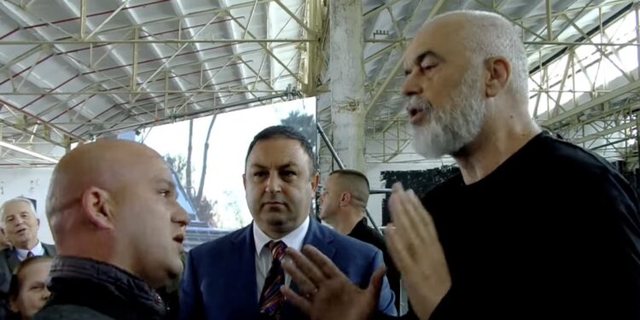
There comes a point in Edi Rama's campaign meetings when he can no longer maintain the role that every politician leaves home with; that of a servant of the people, of a man who has come to listen to the troubles of citizens and who from time to time throws some slur or accusation at his political rivals. This is the moment when a citizen complains to him that he has paid a bribe, that he has been forced to make underhand payments to receive services that normally come to him for free, and with the chance he is given to have the prime minister face to face, he hopes to improve things by making him aware of corrupt officials who behave dishonestly and ask citizens to hand them money.
It is at that moment that Rama's smile turns to a frown, the promises of revitalization stop and the screens with 3D projections turn off. The poor citizen who has dared to raise the topic of corruption, to break this taboo of electoral meetings and to raise his voice to complain, is confronted with the other face of the prime minister, that of arrogance, intimidation and the language of blackmail.
The scene was repeated this Monday in Shkozë, during a meeting that aimed to assure the residents of the area about the guarantees and standards of the weapons factory that is expected to be built near their homes. The theater of listening to the troubles with the people started well, with the speeches of the new ministers who recited the speeches and assured the citizens that it was not the time to panic, on the contrary, the new factory brings both employment and investment. There were also citizens who requested the construction of roads, someone requested legalizations and another thanked the government for the great work it had done in Shkozë. But the meeting took a different turn, almost breaking up precisely when one of the citizens stood up and without batting an eyelash mentioned to Edi Rama the corruption of the IMT and police inspectors, who as soon as he tries to build a small house, for example, appear one after the other in a line and do not leave without being well-off with money.
"One moment you're going to build a chicken coop, but you're going to burn it, the IMT, IKMT, municipal police, and the public order police come. They don't even come to enforce the law, but they come and say 5 thousand one, 5 thousand the other, 20 thousand euros. Look at this job yourself," the citizen said.
That's all it took for Rama to abandon the role of a statesman who has come there to listen and complain about the troubles of his fellow citizens. Just as if he were one of the accused inspectors himself, as if he had been caught red-handed, the prime minister got angry and started speaking to the citizen in a different tone, blaming him too with the words: "You can't talk in the air" "Your Majesty built here without a permit? Or not? Huh?" "It's also a great shame that you say that", "You will denounce him because you can't do this to me and laugh, do you understand?", "Based on Albanian law, you are just as guilty as whoever did this"
You can see the video of the citizen's complaint about inspectors' corruption and Rama's response below:
Convinced that the citizen would be afraid to go further with the denunciation while declaring him equally guilty of corruption, Rama invited him to go to the police, or to remain silent, always demanding responsibility for the words spoken publicly.
From the way he reacted, it is clear that the prime minister does not see the citizen who complains about corruption as a victim.
On the contrary, in the eyes of the prime minister, he is guilty, because he dared to make the denunciation in front of the cameras, not to remain silent about a truth that everyone knows, in an electoral meeting where the unwritten rule of silence and acting as if everything is going well must be respected. Even when the meeting ended, (VIDEO ABOVE), it is seen how the Minister of the Interior, Ervin Hoxha, asks the citizen to be silent and tells him that he was wrong, warning him about the accusation he made of corruption, even though he insists that this is a truth that everyone knows, because everyone had paid money for the legalizations.
The truth about corruption is not a few inspectors and police officers who happened upon "bad guys" in an alley on the outskirts of Tirana. They are part of a wider mechanism, designed to collect bribes and then pass the money from hand to hand, all the way up to the top of the state administration. This is also how the vast machinery of electoral campaigns is supplied and kept afloat.
Therefore, anyone who raises their voice about this injustice has no choice but to receive threats and intimidation from the leader, who himself sits cross-legged at the top of the system. From this position, he is always ready to listen to the people, but not when the people tell him the truth./Lapsi.al
Latest news


Analyst: Edi Rama is an ordinary fraudster
2025-04-28 22:30:06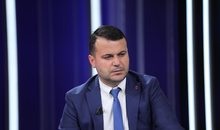
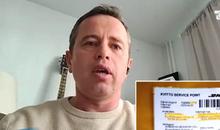
Immigrant in Sweden accuses CEC of violating the secrecy of his vote
2025-04-28 21:44:30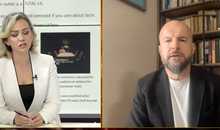

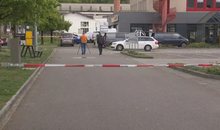
Bullets fired at car, Albanian injured in Switzerland
2025-04-28 21:02:07
Albanian caught with 2 million euros of cocaine in his car
2025-04-28 20:45:20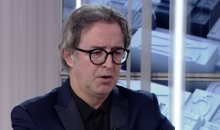
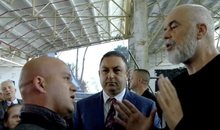
Why does Rama threaten citizens who complain about corruption?
2025-04-28 20:17:54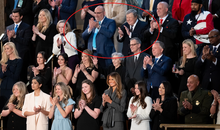
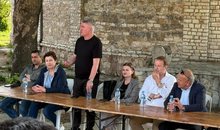
Gjekmarkaj meeting with residents in Tale 2: We win 5:2 in the Lezha region
2025-04-28 19:55:24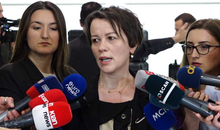
CEC tests PEI devices to be used on May 11
2025-04-28 19:36:24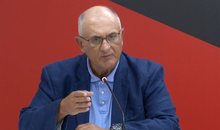


"Enough is enough", Rama is distracted by young people during the meeting
2025-04-28 19:12:28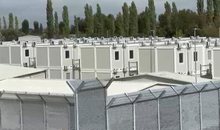
"La Stampa": 16 migrants have "disappeared" from the Gjadri camp
2025-04-28 18:55:34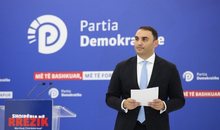
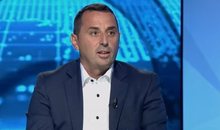

A person's eyes can tell if they have 'mental problems'
2025-04-28 18:05:09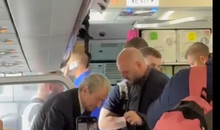
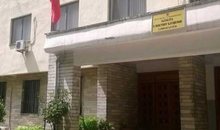

Cardiovascular diseases, 8% of patients at risk for cardiac arrest
2025-04-28 17:19:40
Xhaferri: The next Prime Minister from the DP will be for all citizens
2025-04-28 17:11:44

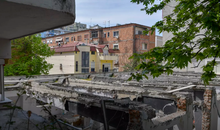

Children with developmental and speech delays due to "cellphone in hand"
2025-04-28 16:22:51
Power outages in Spain and Portugal, services 'paralyzed'
2025-04-28 16:14:38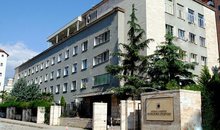

Richard Grenell reacts to the news reprinted by Politiko: It is false!
2025-04-28 15:52:47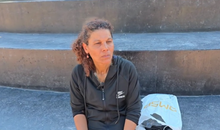

Foods with vitamin A, here's why they are vital for eye protection
2025-04-28 15:32:34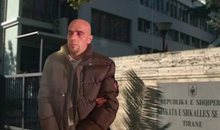



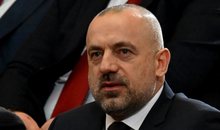
Kosovo issues arrest warrant for Radočić for war crimes
2025-04-28 14:42:59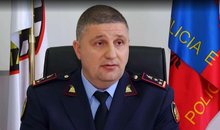
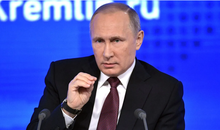
Putin declares ceasefire in Ukraine!
2025-04-28 14:12:44

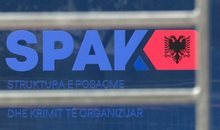
"Partizani" file, GJKKO rejects the request for the judge's disqualification
2025-04-28 13:35:08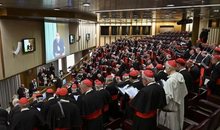
Election of the new Pope/ Conclave to meet on May 7
2025-04-28 13:28:50

Cross-border terrorism? India and Pakistan continue to exchange fire in Kashmir
2025-04-28 13:01:20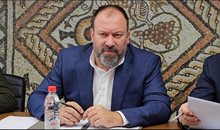
Arbjan Mazniku is being questioned by the Tirana Prosecution Office
2025-04-28 12:37:37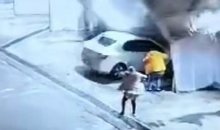
Video/ Tragic in Turkey, 3 people lose their lives after landslide
2025-04-28 12:22:54
The Pope of humane values who inspires hope among Albanians
2025-04-28 12:21:48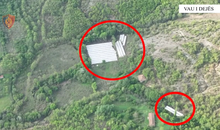
2200 cannabis plants and 578 seedlings seized in Vau e Dejës
2025-04-28 12:09:51
Quarrel between son-in-law and mother-in-law in Fier, police intervene
2025-04-28 12:01:28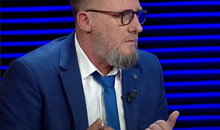
The opposition's trap with lobbying, and the pit where Rama's media 'heads' sank
2025-04-28 11:58:31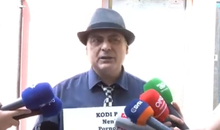

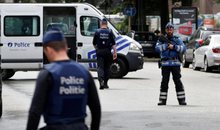
3 cannabis plantations discovered in Belgium, 5 Albanians arrested
2025-04-28 11:21:01

Two cars collide on the Lezhë-Manati axis, 5 injured
2025-04-28 11:02:08
Trump thinks Zelensky is ready to give up Crimea
2025-04-28 10:47:43
Crossing the line? DW: Conservative Catholics against blessing for all
2025-04-28 10:38:58


Meta calls on Albanians: Vote no. 1! Great Albania is very close
2025-04-28 10:01:03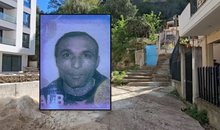
Photo/ This is the 58-year-old man who was executed with three bullets in Vlora
2025-04-28 09:44:12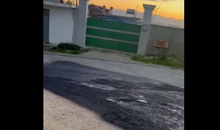
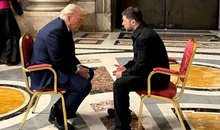
Trump doubts Putin's desire for peace
2025-04-28 09:08:27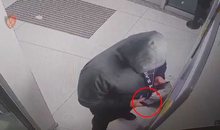
Defrauding citizens with fake banking messages, 23-year-old arrested in Tirana
2025-04-28 08:48:39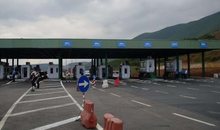
Border controls between Albania and Kosovo are lifted
2025-04-28 08:33:30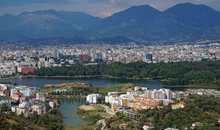
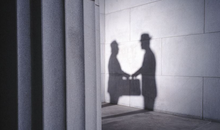

EU pulls out US academics after Trump freezes funding
2025-04-28 07:33:30

Morning Post/ In 2 lines: What mattered yesterday in Albania
2025-04-28 07:10:22

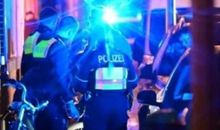


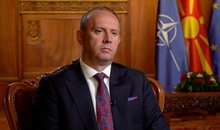

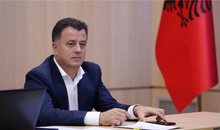

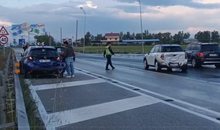
Collision between three vehicles in Lushnja, four injured
2025-04-27 18:48:40
Accident on the Lushnja bypass, "Range Rover" crashes and catches fire
2025-04-27 18:29:38

5 small habits that can change your life
2025-04-27 17:43:38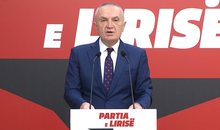

Will Pope Francis' successor be a Hungarian?
2025-04-27 16:37:36

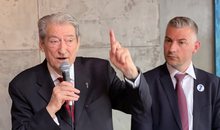
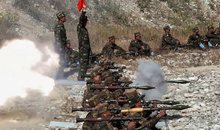
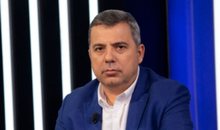

Two Albanians arrested in Germany, one wanted in two countries
2025-04-27 14:51:03
From sea salt to beer, discover the most dangerous foods for our health
2025-04-27 14:34:30


Two charged with allegedly raping former DP MP's son in Lundë
2025-04-27 13:29:21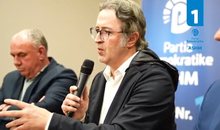

Thumanë/ A gunshot is fired at a car, the perpetrator is identified
2025-04-27 13:00:06
